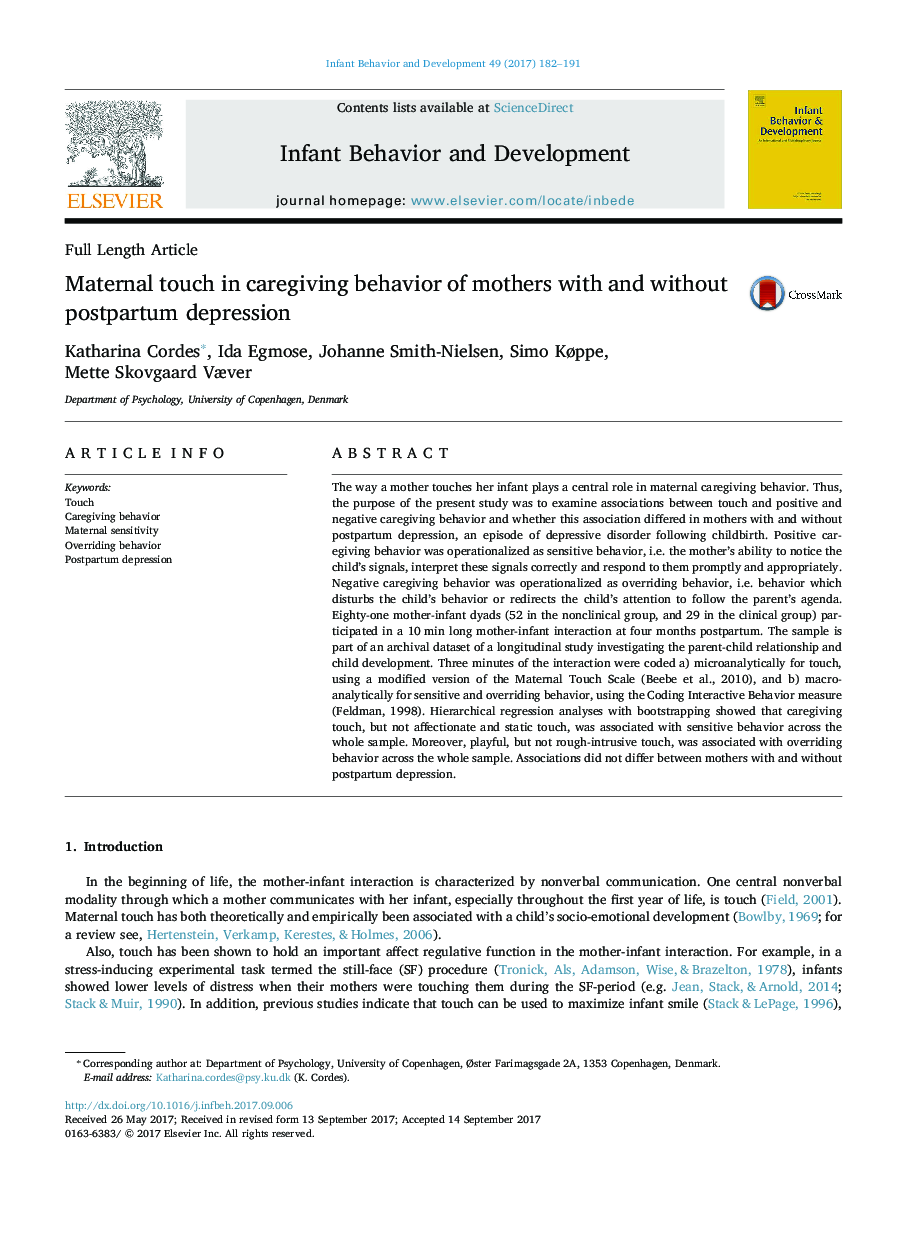| Article ID | Journal | Published Year | Pages | File Type |
|---|---|---|---|---|
| 5039767 | Infant Behavior and Development | 2017 | 10 Pages |
The way a mother touches her infant plays a central role in maternal caregiving behavior. Thus, the purpose of the present study was to examine associations between touch and positive and negative caregiving behavior and whether this association differed in mothers with and without postpartum depression, an episode of depressive disorder following childbirth. Positive caregiving behavior was operationalized as sensitive behavior, i.e. the mother's ability to notice the child's signals, interpret these signals correctly and respond to them promptly and appropriately. Negative caregiving behavior was operationalized as overriding behavior, i.e. behavior which disturbs the child's behavior or redirects the child's attention to follow the parent's agenda. Eighty-one mother-infant dyads (52 in the nonclinical group, and 29 in the clinical group) participated in a 10Â min long mother-infant interaction at four months postpartum. The sample is part of an archival dataset of a longitudinal study investigating the parent-child relationship and child development. Three minutes of the interaction were coded a) microanalytically for touch, using a modified version of the Maternal Touch Scale (Beebe et al., 2010), and b) macroanalytically for sensitive and overriding behavior, using the Coding Interactive Behavior measure (Feldman, 1998). Hierarchical regression analyses with bootstrapping showed that caregiving touch, but not affectionate and static touch, was associated with sensitive behavior across the whole sample. Moreover, playful, but not rough-intrusive touch, was associated with overriding behavior across the whole sample. Associations did not differ between mothers with and without postpartum depression.
